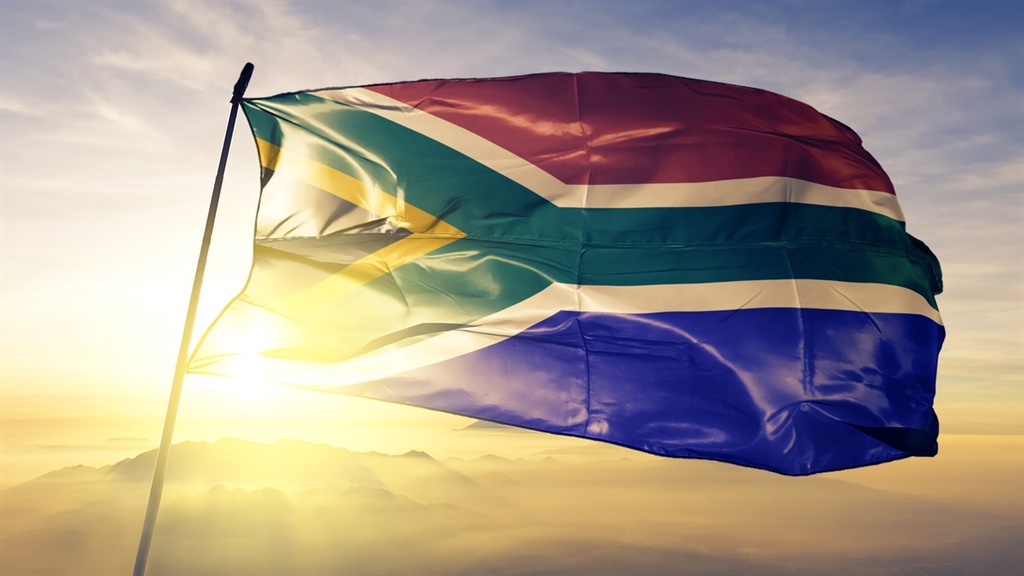
There is a broader perspective to consider, instead of through the prism of the state, as we contemplate potential paths to freedom from they country's current travails, argues Thula Simpson.
As we move further from South Africa’s first democratic elections on 27 April 1994, the anniversary of this iconic date – Freedom Day – gives South Africans the occasion to reflect on and reconsider what freedom means.
Back then, "freedom" had a visceral meaning, defined by the still-raw wounds suffered during the struggle against apartheid. Today, almost three decades later, South Africans may reassess the significance of the day.
READ | Howard Feldman: This is why I will be celebrating Freedom Day
Of the two categories of freedom – "freedom to" and "freedom from" – the first conventionally relates to the absence of restraint or control, the latter to protection from harm. Placed on the current political spectrum, the Economic Freedom Fighters lean towards protective intervention by a strong activist state on behalf of the poor, whereas constituents of the "Rainbow Coalition" (the Democratic Alliance, Action SA, the Freedom Front Plus and the African Christian Democratic Party) tend to stress the need for greater freedom for individuals and businesses from centralised state control than the African National Congress government has been prepared to permit. These two visions of freedom will determine the contours of the realignment of South African politics in the years to come.
Growing contestation over power
Amid growing contestation over power, some are asking whether political freedom itself might be at risk, and specifically, whether the 2024 South African general election process will be truly free and fair. There are some troubling precedents.
Witness, for example, the questionable power cuts and violent protests that accompanied the mayoral vote in eThekwini following the local government elections in 2021 and the "bureaucratic-administrative" methods employed before and since to undermine new administrations in Gauteng metros.
The cultivation of historical understanding – that antecedents offer insight into prospects – can help to future-proof us, thereby mitigating the anxiety that prevails among many South Africans. It is as if the country's political clock is permanently set at five minutes to midnight, as citizens await with foreboding the Armageddon that is supposedly around the corner. In all probability, however, a consequence of constantly preparing for the worst has been to provide some form of insurance against it.
READ | FIRST TAKE: A bloated Presidency - The rise of a parallel state under Cyril Ramaphosa's watch?
Put differently, a striking feature of the post-apartheid years has been the establishment of what are, in effect, parallel governance structures that perform many competencies that elsewhere are arrogated to the state – healthcare, education and security, for example. These structures are primarily subsidised by out-of-pocket payments by the middle and upper classes to provide them with "freedom from". But to an increasing extent, the movement has extended to the poor as well.
The level of development and sophistication of these structures was demonstrated during the July 2021 riots, when, in the absence of state protection, the proverbial clock struck midnight, upon which community police forums sparked into life, human chains protected stores, and concerned residents kept vigil. The effects of the riots were hugely damaging, but there were well-prepared firetraps as a consequence of such an occurrence having been anticipated so long in advance.
South Africans' resilience
As is often (and sometimes wearingly) stated, there exists a degree of resilience among South Africans that has become part of the national DNA, an identity that has been forged over many trials and which constitutes of a core robustness with which to face future crises.
This reduces social risk, and the current energy crisis offers a further example. It has been almost two decades in the making. To have not made some provision for what will happen in the event of the lights going out is to live in a parallel post-apartheid reality. And as the crisis has deepened, so has investment in alternatives. Again, the consequence of any collapse of the central power grid will be immensely damaging – to be clear, it is better to avoid such catastrophes – but as the saying goes, to be forewarned is to be forearmed, and South Africans have had plenty of both. We are not, as yet, a failed society.
And that is a critical point. Historians have noted that until the establishment of a central state in 1910, "South Africa" was merely a geographical term. That may be a valuable concept to revive.
Take a look around: there are strong nuclei everywhere around us, upheld by many people who are committed to the improvement of their communities and schools. Together they form regions that, whatever the national prognosis, will count among the most exciting emerging markets in the world over the next few decades. Our supermarket shelves brim with a wide range of excellent produce; new restaurants pop up with no shortage of patrons.
Our university libraries are stocked with up-to-date sources; we have world-class academic staff and research centres. This can be easily missed if one insists on viewing social reality only through the prism of the state. This 27 April, it might be worth considering that broader perspective as we contemplate potential paths to freedom from our current travails.
-Prof Thula Simpson, Associate Professor of History at the University of Pretoria.
*Want to respond to the columnist? Send your letter or article to opinions@news24.com with your name and town or province. You are welcome to also send a profile picture. We encourage a diversity of voices and views in our readers' submissions and reserve the right not to publish any and all submissions received.
Disclaimer: News24 encourages freedom of speech and the expression of diverse views. The views of columnists published on News24 are therefore their own and do not necessarily represent the views of News24.




 Publications
Publications
 Partners
Partners
























